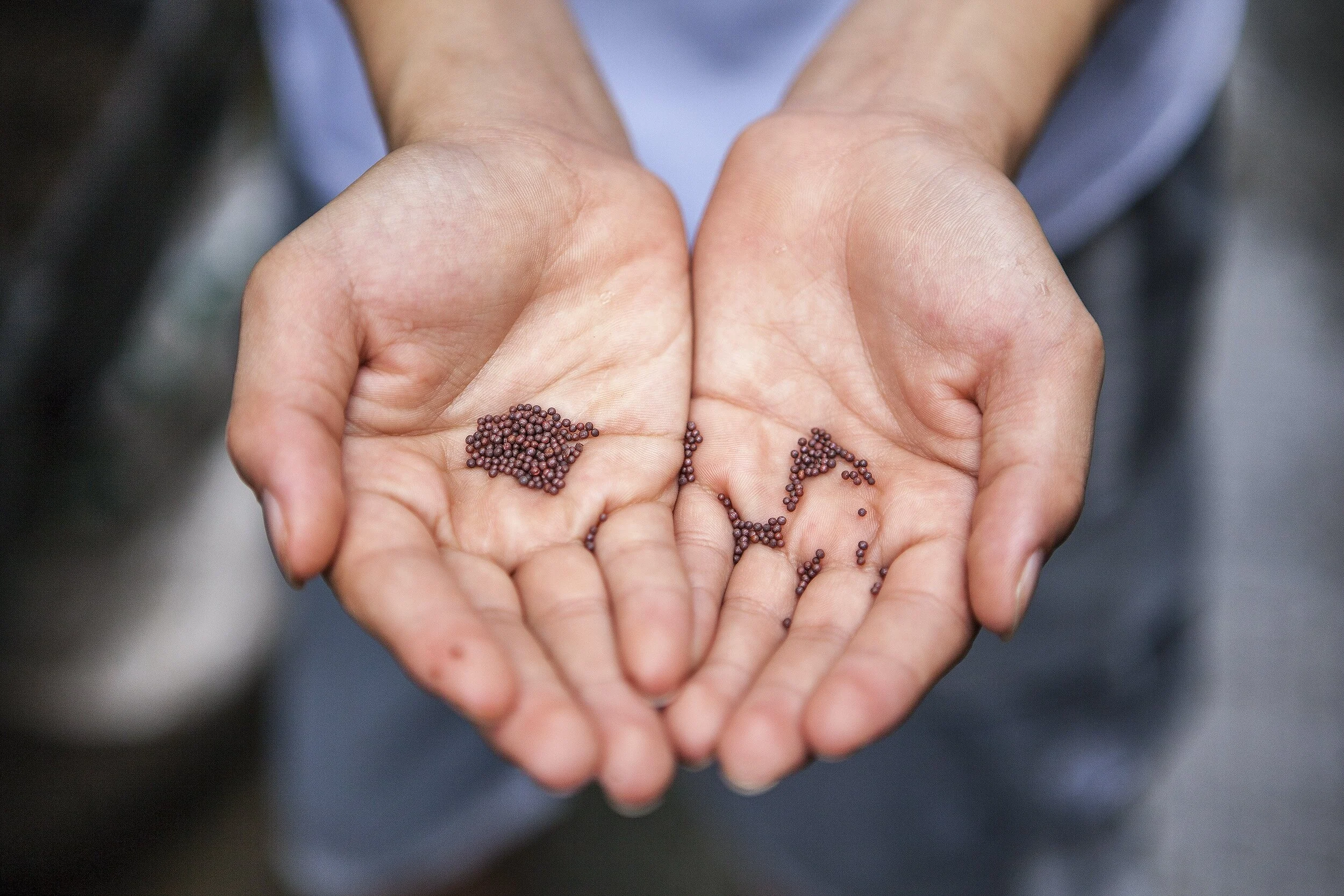Reaping and Sowing
My little niece is smart. Too smart. Sometimes it is scary to see her little brain at work.
One time in particular sticks out in my memory.
My brother and I (her two uncles) brought our two year old niece to the circus. It was a sad display.
It seemed like everyone working the circus had essentially given up on fanfare, and had settled for being high on cotton candy and meth.
Even the animals seemed to be half-heartedly performing. “So put my leg here, fine. Jump from this box to that box. Okay. Do I get my treat now? Perfect. I’m going back to sleep.”
Maybe the circus was always like this, or perhaps the natural wonder of children gets projected on to this less-than-enthusiastic scene.
My niece was a good sport. She oohed and aawed at all the right places. It was mostly because of my brother’s forward thinking.
He bought an industrial-sized box of popcorn, and methodically gave my niece one piece of popcorn at a time. She seemed satisfied with this arrangement. She kept her eyes on the show and trustingly extended her paw for each popcorn kernel.
Brilliant!, I thought to myself. That was, until, after intermission.
We went up to purchase some piece of crap or another. When we got back to our seats our niece made sure to secure the box of popcorn in her lap. For the rest of the event my brother and I were treated to popcorn from my niece. . . one kernel at a time.
Sowing and reaping is a constant we can trust. It is like Newton’s Law. Or that Fig Newtons are gross.
There is the uber-spiritual side of sowing and reaping:
“Generosity sends frequencies into the universe.”
“It’s partnering with abundance.”
“Generosity is close to Godliness.”
But it is also much more practical than that.
Often, we don’t recognize the simple fact that we train others how to treat us. If we are mean, stingy, angry, or frustrated; people will respond in kind. If we are kind, generous, hopeful, and believing; people will again respond in kind.
There are essentially three mindsets.
1.) A scarcity mindset.
2.) An irresponsible mindset.
3.) An abundance mindset.
The first two mindsets are both responses to insecurity around money and provision.
A scarcity mindset believes in a zero-sum game: “If you win, I lose.” In other words, the pie of resources is only so big. So, if you get a bigger slice I must get less pie. It causes people to be frugal, stingy, and overly protective with money. They are covering their insecurity with a fear-based, controlling nature. Scrooge had a scarcity mindset. That was, until he went on several blind dates with phantoms.
The irresponsible mindset is afraid of money and finances. They ignore their credit. They don’t want to make a budget. They are intimidated by taxes, etc.
Basically, they are uncomfortable taking healthy accountability for their finances, so they act as if it doesn’t matter what they do. Their mascot would be an ostrich burying his face in the sand: “If I don’t see it, it doesn’t exist!”
The third mindset, the abundance mindset, is much healthier. It assumes there is more-than-enough resources to go around. It prioritizes healthy stewardship and clarity with money, but also being substantively generous. Ironically/spiritually/or predictably; this mindset often creates more abundance for the person and those around them.
Think of sowing and reaping like a body of water. You have the people who are constantly pouring out, but never getting filled (an empty pond). You have the people who are receiving but never relieving (the stagnant pond). And you have the people who both receive and give generously (rivers). The amount of influence and goodness they can receive (and give) is unlimited.
How does this concept get applied (like, in the real world)?
You can start by asking yourself these questions:
Do I treat people the way I want to be treated?
Am I being generous with my time?
Am I being generous with my resources?
Do I assume the best of people? Or am I instantly critical?
Do I assume people will like me? Or do I assume I will be disliked?
Am I afraid of money (or not having security)? Or is money fun to consider, use, and to give?
If you answered any of these questions in ways that make you uncomfortable, you may be limiting your ability to sow. You’ve created paradigms that are keeping you from being your authentic, generous self.
If we don’t like our answers, it is time to take proactive steps to change them. Here are a few tips:
Connect with people who have mindsets you want.
Confront beliefs that were based on circumstances and not universal truths.
Define how you WANT to answer those questions.
The stark reality is our paradigms (and behaviors) will inevitably come back to roost.
We may not like what we receive in return for “the frequencies we sent out into the universe.”
For example, we may find ourselves on the receiving end of a toddler whom we have trained to give us a pittance of the sustenance we desire, and at a spectacle of entertainment long-since bereft of any creativity or enthusiasm.
You’ve been warned.








